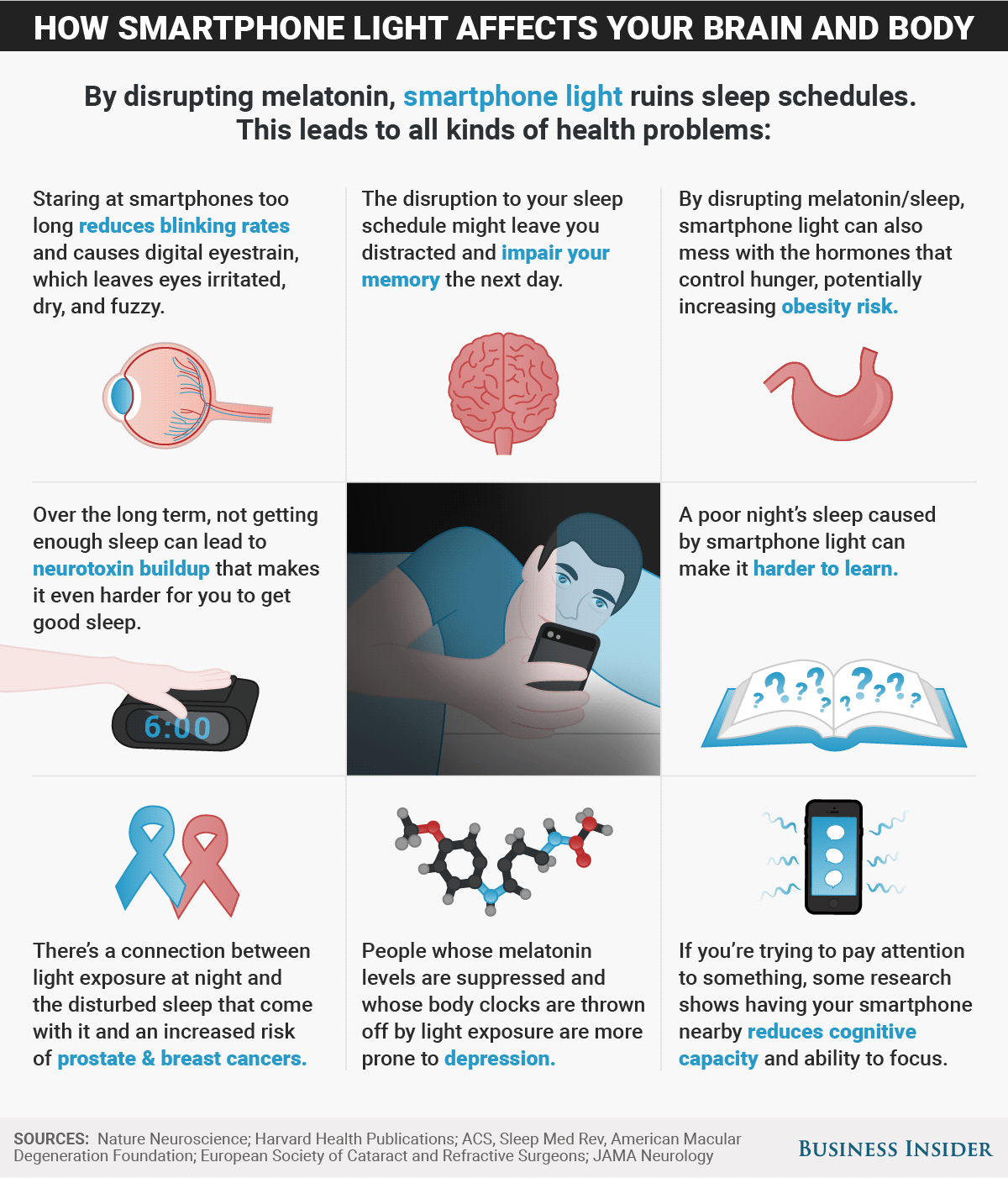The science behind why you shouldn't look at your phone before you sleep

Smartphone light can make it harder to fall asleep, leading to serious health problems Image: REUTERS/Lucy Nicholson

Get involved with our crowdsourced digital platform to deliver impact at scale
Stay up to date:
The Digital Economy
The designers of our smartphones, tablets, and laptop screens have been able to create incredibly powerful lights. These screens glow bright enough to be seen during a sunny day. At night, they're so strong that they've been compared to a "little window" that daylight can peer through.
That's why looking at your phone at night is a terrible idea.
Our bodies naturally follow a cycle that allows us to stay awake and alert during the day and helps us get essential rest at night. But when we look at these screens as we're getting ready to sleep, our brains get confused. Bright light can make the brain think it's time to stop producing melatonin, a hormone that gives your body "time to sleep" cues.
By disrupting melatonin production, smartphone light can disrupt your sleep cycle, almost like an artificially induced jet lag. That makes it harder to fall and stay asleep — which could lead to serious health problems.
To combat this problem, app designers have created programs like f.lux and Apple's Night Shift mode, which adjust the light tones emitted by screens at certain times of day to remove bright blue light from the display. Many users say the orange tint these apps give feels less harsh on the eyes. But while some research indicates that dimmer light may improve sleep, more study is needed on the topic.
Even if such changes do prove to be helpful, experts say that many other things we do with our phones are also not conducive to sleep. If you're trying to get ready for bed and a late night work email pops up, that might wreck your sleep even more than shutting down your melatonin production.
If you can bring yourself to do it, your best bet is to steer clear of screens before you fall asleep. At the very least, try to keep them out of your bed.
Don't miss any update on this topic
Create a free account and access your personalized content collection with our latest publications and analyses.
License and Republishing
World Economic Forum articles may be republished in accordance with the Creative Commons Attribution-NonCommercial-NoDerivatives 4.0 International Public License, and in accordance with our Terms of Use.
The views expressed in this article are those of the author alone and not the World Economic Forum.
Related topics:
The Agenda Weekly
A weekly update of the most important issues driving the global agenda
You can unsubscribe at any time using the link in our emails. For more details, review our privacy policy.
More on Fourth Industrial RevolutionSee all
Kate Whiting
July 24, 2024
David Elliott
July 19, 2024
Kirsten James
July 19, 2024
How governments can attract innovative manufacturing industries and promote 4IR technologies like AI
M.B. Patil and Alok Medikepura Anil
June 24, 2024
John Lombard
June 24, 2024
Pooja Chhabria
June 23, 2024







